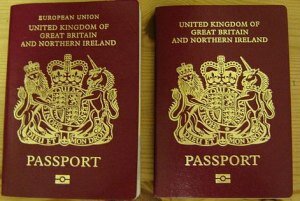Indian govt relaxes FDI rules in retail and aviation to fuel economic growth
“The Cabinet has taken many decisions today to bolster economic growth and make India a more attractive destination for foreign investment,” Prime Minister Manmohan Singh said.
“These steps will help strengthen our growth process and generate employment in these difficult times,” he added.
The approval of FDI in retail means foreign retail giants including UK’s largest retailer Tesco as well as global retailers such as Walmart and Carrefour will be able to enter India. Several foreign retailers such as Ikea, Tesco and PizzaExpress have shown their interest to break into the Indian market but were unable to because of the stringent FDI rules hitherto.
But, the central government has left it to the state governments to decide whether to allow such retail shops to operate or not. It has also tweaked the regulations in FDIs for single brand retail requiring foreign retailers investing more than 50% to set up manufacturing facilities in the Indian regions.
The Cabinet had previously approved 51% FDI in retail in November 2011 but it was put on hold because of the opposition it faced including those from its own Trinamool Congress party. The approval came after a Cabinet meeting on Friday, September 14.
The approval of 49% FDI in the aviation sector also means that foreign airlines will be able to bid for Indian airline companies throwing a lifeline to several ailing Indian airline companies such as Kingfisher Airlines.
More like this
Although FDI in the aviation sector existed previously, foreign airlines were not allowed to buy stakes. That will now change providing a huge sigh of relief to the ailing aviation sector.
The Cabinet also allowed foreign investment up to 49% including 26% FDI and 23% FII in power Trading Exchanges btu added that the investment must be compliant with SEBI (trading watchdog) regulations.
Among other measures, the government announced disinvestment in four PSUs (Public Sector Units) which may bring 15,000-crore rupees to the government. The government will disinvest nearly 10% equity in Hindustan Copper Ltd, 12.15% in National Aluminium company Ltd (Nalco), 10% in Oil India Ltd and 9.33% in MMTC Ltd.
The decision to approve FDI follows the government’s decision to increase fuel tariffs sharply. Diesel prices in India were hiked by 14% a day ago.
“I urge all segments of public opinion to support the steps we have taken in national interest,” Prime Minsiter Singh added.
NEW UPDATE: OCTOBER 4, 2012:
The Indian government approves more reforms by allowing 49% foreign investment in insurance companies and opening up the pension sector for investment too.
Most read
- 2015: Full list of Indian States, capitals and their Chief Ministers
- Indian cabinet 2014: Full list of Ministers and their portfolios in the Modi government
- Recipe: Misal Pav – how to make missal masala, usal and tarri
- Review: Southall Travel (Also Travel Trolley and Fly Sharp)
- South Indian actress Trisha Krishnan’s father passes away
- Pics: Trisha Krishnan rocks Tarun Tahiliani saree for Lion film’s audio launch in Hyderabad
- Commonwealth Games 2014: Full list of Indian gold, silver and bronze medal winners
- Ileana D’Cruz and Virat Kohli sizzle in TV ad for Clear anti-dandruff shampoo
- Katrina Kaif visits London Madame Tussauds to unveil her own wax statue
- Lycamobile's Indian arm offers 1-rupee roaming SIM for Desi travellers
India News Bulletin by email
Desi Events
Featured Stories
More Lead Stories
- Review: Southall Travel (Also Travel Trolley and Fly Sharp)
- Amitabh Bachchan honoured with Padma Vibhushan
- Long stay Indian visitors, students, professionals to pay for NHS access
- Mahatma Gandhi statue erected in London’s Parliament Square
- Pics: Deepika Padukone and Irrfan Khan’s blossoming chemistry in Piku






















